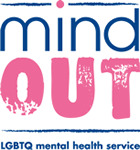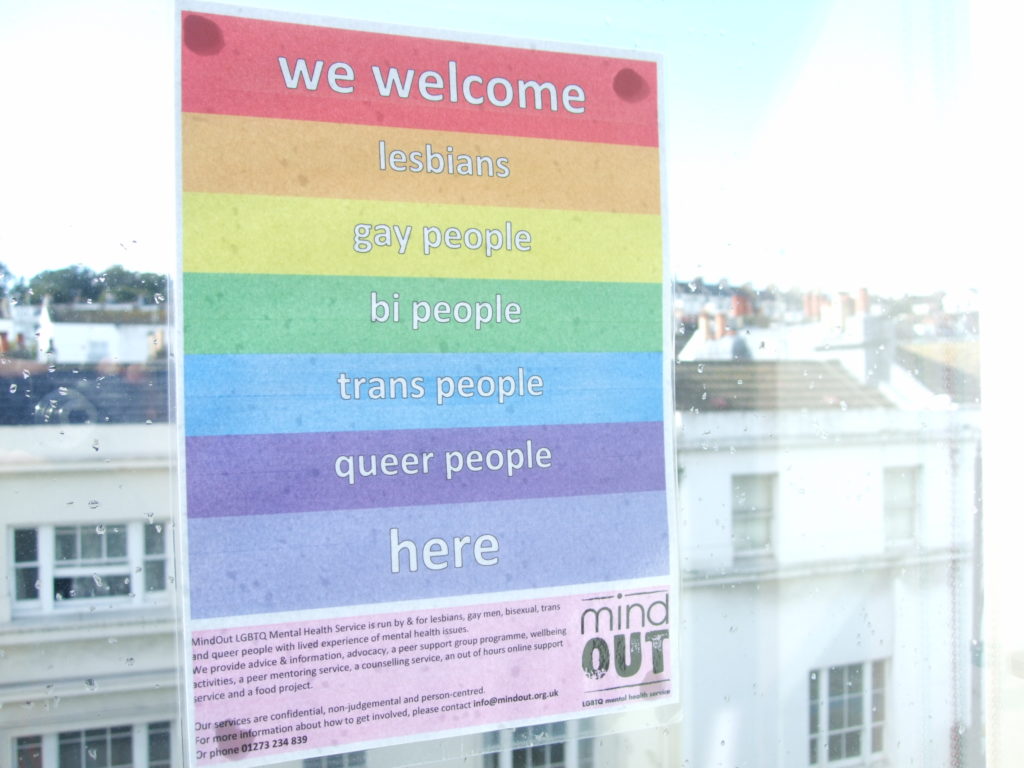Despite huge strides in Equality legislation and awareness, LGBTQ communities have higher rates of anxiety, depression, substance misuse and suicidal distress than mainstream communities.
Evidence indicates that gay and bisexual men are over 4 times as likely to attempt suicide than heterosexual men and LGBTQ people are at least 1.5 times more likely to suffer depression and anxiety (King M, 2008), 84% of trans people are suicidal pre-transition (Scottish Transgender Alliance 2012).
Mental health problems experienced by LGBTQ people have been linked to experiences of discrimination, homophobia and bullying. This is often internalised, which goes some way to helping us understand why our communities experience such poor mental health. Also LGBTQ are likely to experience ‘minority stress’ such as anticipating rejection, concealing our identities and generally feeling unsafe. This is why LGBTQ specific services like MindOut are so important as they are often grass roots organisations embedded in the communities they serve so they really understand the complex issues.
So how can we improve the experience for LGBTQ people when they are seeking support and how can mainstream organisations respond better to the needs of LGBTQ people experiencing mental health issues?
Here are some top tips for LGBTQ affirmative practice:
-
Don’t assume pronouns.
Refrain from using gender-specific pronouns or words until you know the identity or preference of that person. For example, try to use the term “partner” rather than girlfriend or boyfriend until that person makes you aware of their significant other. It is extremely uncomfortable for this person to have to correct you if you assume something that turns out to be incorrect. Ask open questions such as which gender pronoun do you prefer?
-
Ensure confidentiality and discretion.
Ensure LGBTQ people feel safe to disclose their identities – having to remain invisible only compounds poor mental health.
-
Every LGBTQ person is different.
This may sound obvious but don’t resort to stereotypes about what a ‘gay’ or ‘bi’ person might be like and recognise intersectionality.
-
Be a proactive ally.
Demonstrating that you are an ally is important – show understanding and acceptance and if in doubt do some research!
-
Celebrate diversity
Make clear statements about diversity and inclusion, celebrate Pride, create safe and welcoming spaces, include LGBTQ imagery in leaflets/posters
To find out more, book onto MindOut’s Responding to the Needs of LGBTQ Mental Health on 6th October 2017

